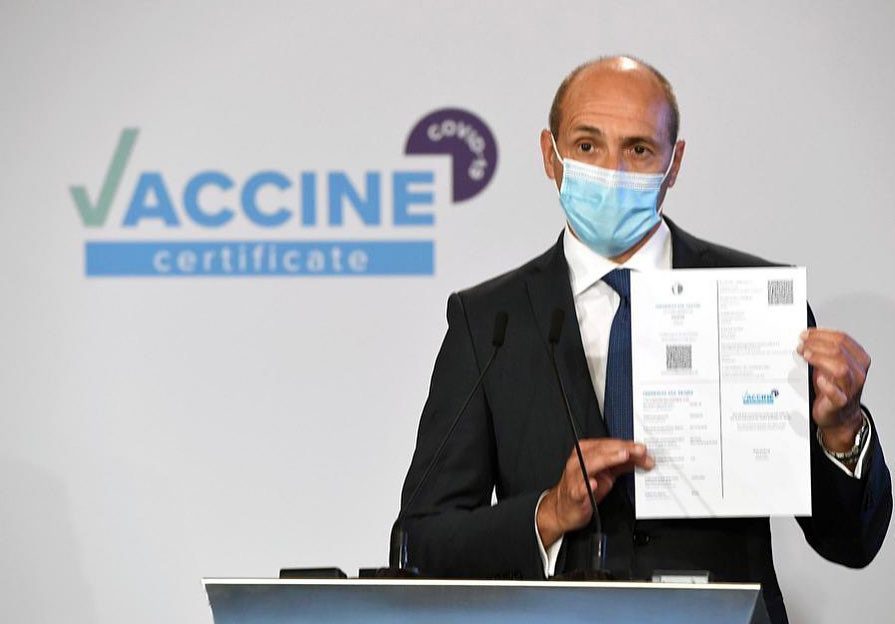An unofficial ‘grace period’ is predicted after the 17th January implementation of Malta’s new vaccine mandate, BusinessNow.mt can reveal.
Contrary to current representations of the rules, the requirement for an individual to have received a booster likely won’t be enforced from the offset, according to well-placed industry insiders consulted by this newsroom.
Instead, it is likely there will be a period where vaccine certificates will be required, but those without booster doses still accepted. According to one source, this grace period will be three months.
Just before Christmas, Deputy Prime Minister and Health Minister Chris Fearne announced that as from 17th January, visitors to bars, restaurants, gyms, pools, sporting events and cinemas will require valid vaccine certificates for entry.
He also announced that from the same date, the certificate will be considered expired once three months from the second dose (or single Johnson and Jonson) have passed or nine months from the booster dose.
Individuals who have had their booster shot within the two week window preceding 17th January, would therefore, not have a valid vaccination certificate, under the new rules.
Leaving things characteristically late, the Government has not yet released a legal notice or in depth information of how this will work or be enforced, but a notice published on the Deputy Prime Minister’s website covers parallel changes to requirements for certificates to be valid for international travel:
Effective 17th January 2022, for adults aged 18 years and over, the following will be needed:
(i) [Original course of doses] with the last dose administered not more than three months previously
OR
(ii) [Original course] and booster with last dose of booster administered not more than nine months previously.
Maltese residents returning back to Malta after the 17th January will be allowed an additional two week grace period, the notice explained, which ends on 1st February 2022 with respect to the validity of the vaccine certificate.
Failing this, international travellers will be expected to isolate for 14 days, in the same vain as those without any certificate at all.
These rules suggest that anyone who had not received their booster prior to 4th January or the final dose of their first round after October 18th, will not get a valid certificate in time.
The legal validity of this three month expiry period – at least for travel – has been called into question, and as reported by Times of Malta, the EU is seeking clarifications on the expiry period, which it says breach its own rules.
Another consequence stemming from the lack of information provided by authorities is that surrounding staffing.
If staff are held to the same rules as customers – and it can be assumed they will be, given that in Malta’s previous implementation of a voluntary vaccine scheme they were – it will likely have a significant impact on the hospitality industry’s staffing levels.
While third country nationals who constitute a significant portion of the sector’s workforce are required to get vaccinated in order to receive a work permit, proof of this is only required for a new application or renewal of an existing one so many will not yet have taken the booster.
Coming as the industry’s already bleak staffing shortage is being further impacted by COVID-related quarantine rules, the enforcement of the rules at face value could push establishments into reducing service.
The Government’s failure to provide timely information on how the new rule will be enforced leaves these companies in the lurch and unable to prepare for the possible impact.
Purely arithmetically, if the vaccine mandate for hospitality establishments was enforced from 17th January, it would leave around 200,000 people fully vaccinated but not yet boosted (or boosted but still within the 14 day period) without a valid certificate – a shocking figure which would likely be catastrophic for the already struggling hospitality industry.
Therefore, should the authorities grant an informal grace period, this would be of great assistance to Malta’s hospitality establishments already battered by the latest wave of COVID, and help customers get in line with the new rules without costing the hospitality sector substantial business.
Additionally, should rules be enforced from the offset, it would likely leave confusion around technical issues that have plagued some people attempting to generate vaccine certificates.
For example, several people have reported that after getting their booster the number of doses is updated on their regenerated certificate, but not the date it shows. Whether this would render their certificate invalid is unclear.
It is also notable, that unlike several other countries such as the Netherlands, Malta’s vaccine certificate does not consider recovery after developing the virus.
This means that un-boosted COVID positive individuals intending to get the booster – and following health ministry advice to wait four weeks after recovery to get the jab – could be stuck for six weeks without a valid certificate.
After something of a slow start, Malta’s booster rollout has picked up speed, and as of Thursday, 254,889 people have received a booster dose. This represents a 24-hour increase of over 8,000.
BusinessNow.mt has contacted the Health Ministry for clarifications. A reply was not forthcoming at the time of writing.
European Parliament adopts regulation making it easier for companies to be paid on time
The maximum credit term under the new Late Payment Regulation is to up to 120 days, for some sectors
French ATC strike forces Ryanair to cancel over 300 flights, affecting 50,000 passengers
The low-cost carrier is demanding the EU carries out reforms to ensure travel continues undisrupted
Valletta ranks 8th most expensive European capital city to live in – study
While London is the most expensive, Bucharest is the most affordable






